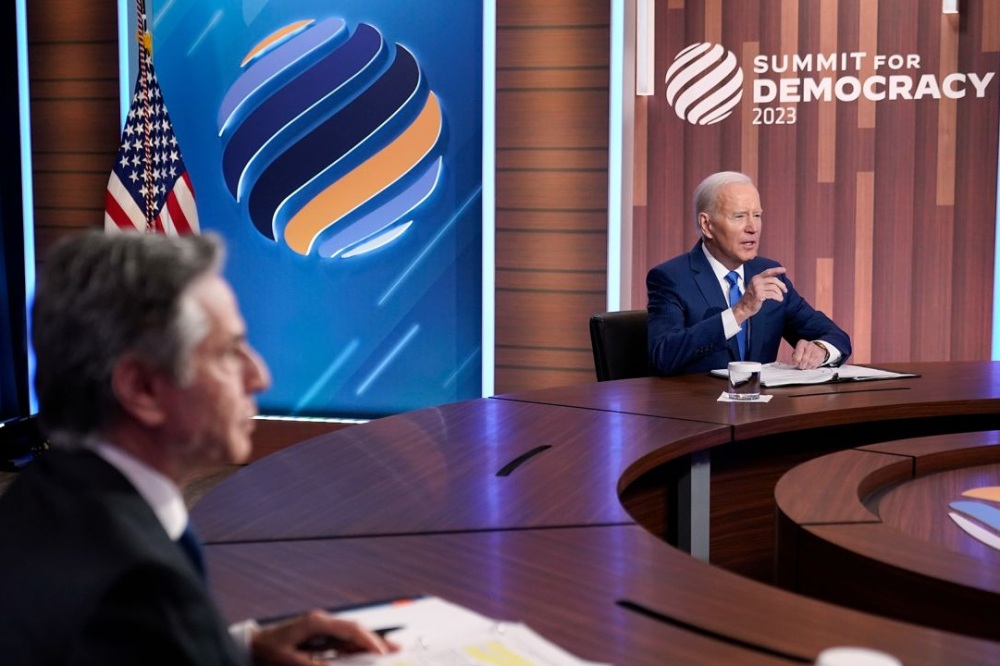
The Biden administration failed to raise its ratings at the second Summit of Democracies. Attempts to present the world with a broad coalition of countries that share the White House’s approach to building a new “rules-based world order” have not withstood the collision with reality.
The summit held under the auspices of Washington on March 29-30 this year raises a lot of questions.
According to the organizers’ idea, 120 countries-participants, sharing the views and approaches of the USA, were to demonstrate the unity of “progressive“ part of the world community around the Western/Anglo-Saxon vision of the current world order. But something went wrong.

Many key regional allies of the United States, such as Turkey, Saudi Arabia and Hungary, were left out of the “chosen” list. Thailand, Singapore and Bangladesh were left out of the event. Despite the invitation, Pakistan refused to participate.
Until recently, the question of Israel’s involvement in this virtual forum remained open. Moreover, the administration was faced with new internal dividing lines, which it was unable to overcome.
As a result, only 73 countries signed the final declaration, 13 of them with significant reservations. A stumbling block for many was the U.S. desire to give the summit a strong anti-Russian bias. U.S. approaches to the rule of ICC and gender equality were also not understood.
As a result, the second Summit of Democracies has every chance of becoming a notable foreign policy failure of the current administration. The outcome of the forum was only a demonstration of the unconcealed U.S. focus on achieving a new division of the world community on the principle of loyalty to PAX Americana.
But even among “fellow” countries, Washington in its present capacity cannot overcome all the “50 shades of gray” and must continue to expend its energies on maintaining internal discipline.
Against this background, formats of intergovernmental interaction that are alternative to American ones are looking increasingly advantageous.
Primarily, BRICS and SCO, whose members prioritize the development of economic cooperation and the search for adequate responses to emerging difficulties in the world economy. At the same time, the shift of the political agenda into the background makes these associations even more attractive.


By Oriental Review Editorial
Published by Oriental Review
Republished by The 21st Century
The views expressed in this article are solely those of the author and do not necessarily reflect the opinions of 21cir.com.
